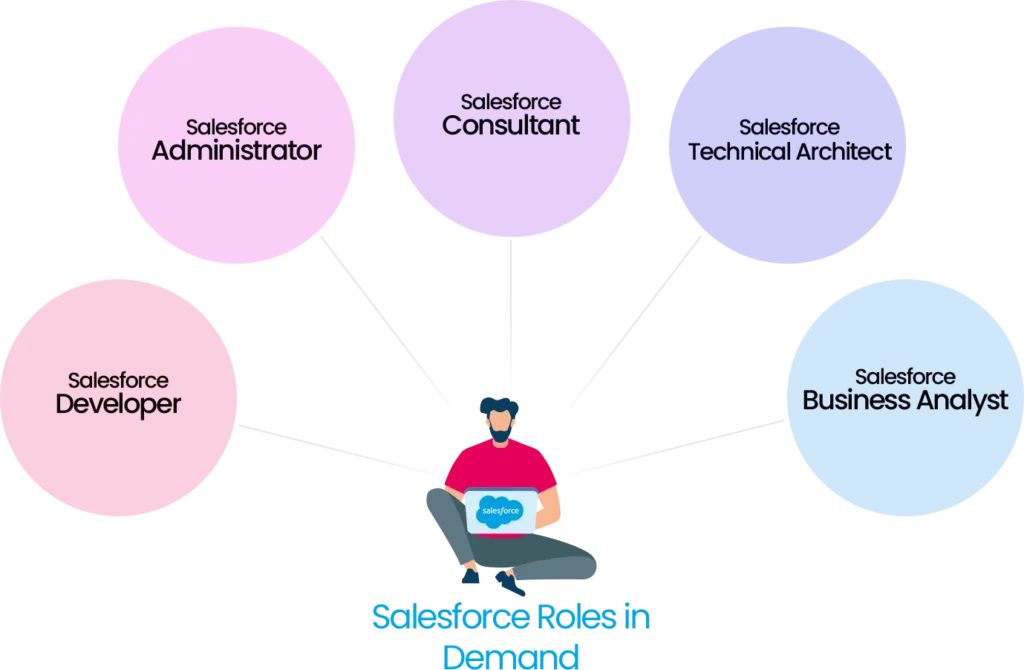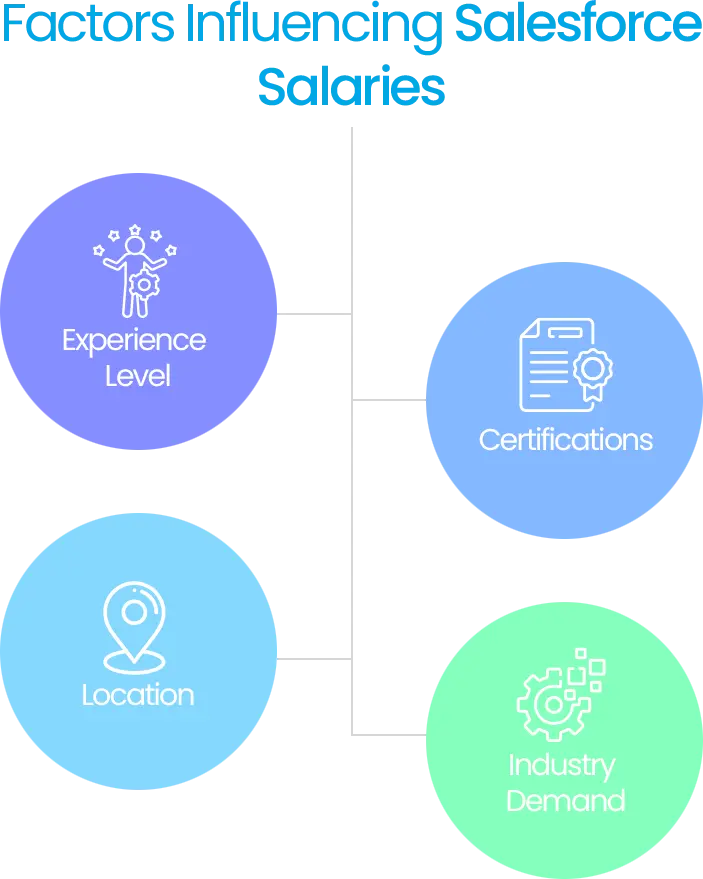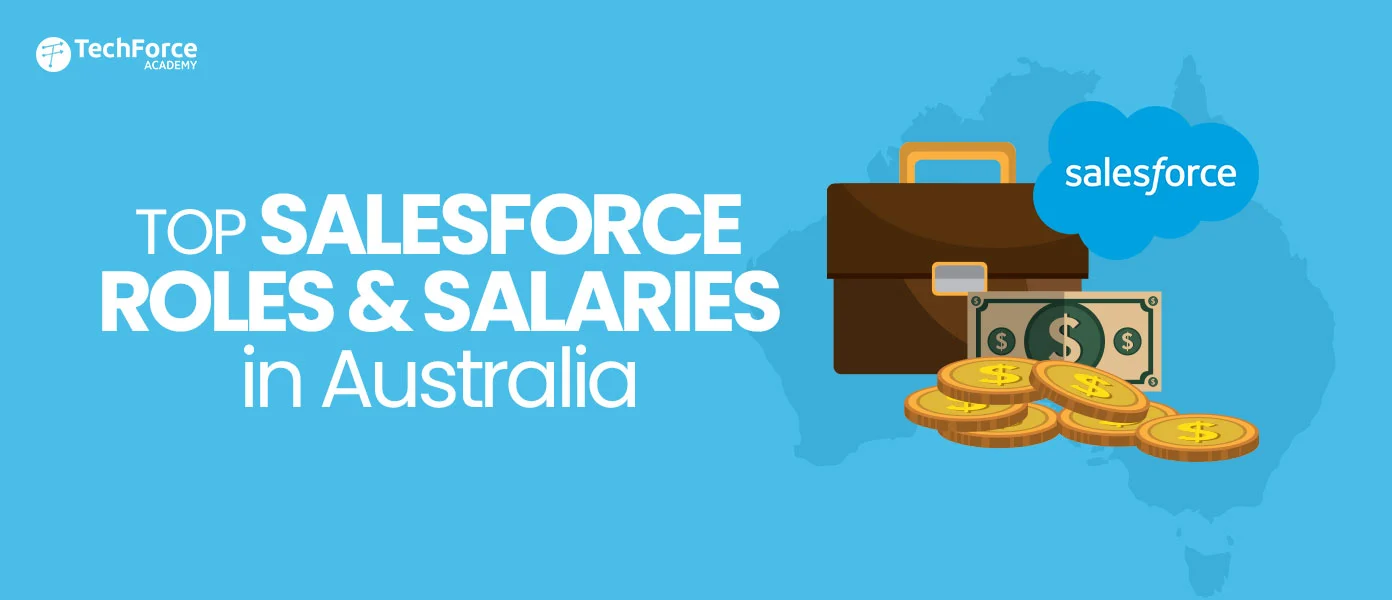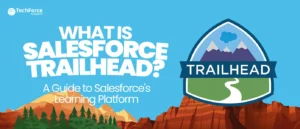Salesforce has revolutionised the way many businesses handle their relationships with customers and has grown to be an essential element of their daily operations. Since the platform is being used across multiple sectors the Salesforce experts are becoming more and more in demand in Australia. Both businesses and job seekers can benefit from understanding the top Salesforce roles and salaries that go along with them.
Read the blog and explore Australia’s top-demanding Salesforce jobs for 2024, outlining responsibilities, necessary skills, and average salary levels for each.
Salesforce Roles in Demand

Salesforce Developer
Role Description
Developing and modifying apps for the Salesforce platform is part of the Salesforce developer job roles and responsibilities. This involves utilising Apex, Visualforce, and Lightning Components to create custom solutions and integrate Salesforce with other platforms. They are also responsible for making improvements to satisfy business requirements.
Skills Required
- Proficiency in Apex, Visualforce, and Lightning Components.
- Strong understanding of Salesforce architecture and APIs.
- Salesforce Platform Developer I and II certifications.
Average Salesforce Developer Salary according to PayScale
- Entry-level: AU$63k
- Mid-career: AU$91k
- Experienced: AU$141k
Salesforce Administrator
Role Description
Salesforce admin roles and responsibilities include managing and configuring Salesforce environments. They also provide user support, maintain system security, and ensure data integrity. They are very important to their organisation’s ability to maximise the platform’s effectiveness.
Skills Required
- Expertise in Salesforce Administration.
- Knowledge of data management and security best practices.
- Salesforce Certified Administrator certification.
Average Salary of Salesforce Administrator (PayScale)
- Entry-level: AU$58k
- Mid-career: AU$81k
- Experienced: AU$109k
Salesforce Consultant
Role Description
Salesforce consultants apply Salesforce solutions and provide strategic guidance to streamline business operations. To provide customised Salesforce apps that promote efficiency and growth, they collaborate extensively with clients to fully grasp their demands.
Skills Required
- Salesforce certifications such as Sales Cloud Consultant.
- Strong business analysis and project management skills.
- Excellent communication and stakeholder management abilities.
Average Salary of Salesforce Consultant according to Talent Australia
- Entry-level: AU$110k
- Mid-career: AU$135k
- Experienced: AU$200k
Salesforce Technical Architect
Role Description
Complex Salesforce solutions are designed and implemented under the supervision of Salesforce Technical Architects. They ensure that the architecture meets both current and future business requirements by integrating Salesforce with other systems and guiding development teams.
Skills Required
- Advanced Salesforce certifications (e.g., Certified Technical Architect).
- Deep knowledge of solution architecture and integration.
- Strong leadership and mentoring capabilities.
Average Salary of Technical Architect According to Talent
- Entry-level: AU$130k
- Mid-career: AU$150k
- Experienced: AU$209k
Salesforce Business Analyst
Role Description
Salesforce ba roles and responsibilities includes conducting stakeholder and development team liaison work, analysing business requirements, and drafting functional specifications. They make sure Salesforce solutions enhance operational effectiveness and satisfy business goals.
Skills Required
- Business analysis and data modelling skills.
- Proficiency in the Salesforce platform and its functionalities.
- Salesforce certification (e.g., Salesforce Certified Business Analyst).
Average Salesforce Business Analyst Salary according to Talent Australia
- Entry-level: AU$100k
- Mid-career: AU$135k
- Experienced: AU$ 195k
Factors Influencing Salesforce Salaries

Experience Level
Experience is a significant factor influencing salaries in Salesforce job roles. While mid-career and experienced professionals can earn much more salary, entry-level positions often offer lesser pay. For example, a Salesforce Developer’s salary ranges from AU$63k at entry level to AU$141k for those with extensive experience.
Certifications
Salesforce certifications are highly valued in the job market and can lead to higher salaries. Certifications like Salesforce Certified Technical Architect, Salesforce Certified Administrator, and Salesforce Platform Developer show a professional’s proficiency and dedication to staying up to date on the latest advancements in Salesforce. It is common for professionals with qualifications to earn more money than those without.
Location
Salesforce salary disparities are also influenced by geographic location. Major cities like Sydney, Melbourne, and Brisbane usually pay more than remote places because of the greater cost of living and increasing demand for Salesforce professionals.
Industry Demand
The demand for Salesforce professionals varies across industries. In sectors including finance, healthcare, and retail, Salesforce expertise is highly sought after and often yields lucrative salaries. Businesses in these sectors value the skills of professionals who can optimise Salesforce implementations since these businesses rely largely on Salesforce to maintain customer relationships and stimulate business growth.
Career Progression and Opportunities
Entry-Level to Senior Positions
Career progression in Salesforce job roles usually begins with entry-level positions, such as Salesforce Administrators or Junior Developers, and progresses to Senior Developers, Technical Architects, and Consultants. As professionals acquire experience and more certifications, they can advance in their professions and assume increasingly demanding and lucrative responsibilities.
Certifications and Continuous Learning
To advance in a Salesforce career path, continuous learning and obtaining relevant certifications are crucial. Some of the recommended certifications are Salesforce Administrator, Platform Developer I and II, Sales Cloud Consultant, Service Cloud Consultant, and Certified Technical Architect. These certificates raise earning potential and work opportunities in addition to improving skills.
Job Market Trends for 2024
The Salesforce job market for Salesforce professionals in Australia is expected to remain strong in 2024. With businesses increasingly adopting Salesforce to streamline operations and enhance customer experiences, the demand for skilled professionals will continue to grow.
A stronger emphasis on multi-cloud solutions, integration with AI technology, and the expansion of remote work opportunities are some emerging trends.
Conclusion
Salesforce offers a wide range of career opportunities in Australia, each with competitive salaries and clear paths for progression. Understanding the top Salesforce roles and their corresponding salaries can help job seekers make informed decisions about their careers and guide employers in attracting and retaining top talent.
Whether you’re just getting started or hoping to progress in your Salesforce career, keeping up with industry developments and consistently improving your abilities with certifications will greatly improve your chances. The future looks bright for Salesforce careers, with ample opportunities for growth and advancement in 2024 and beyond.
Stay ahead of the competition and command a premium Salesforce role and salary!











